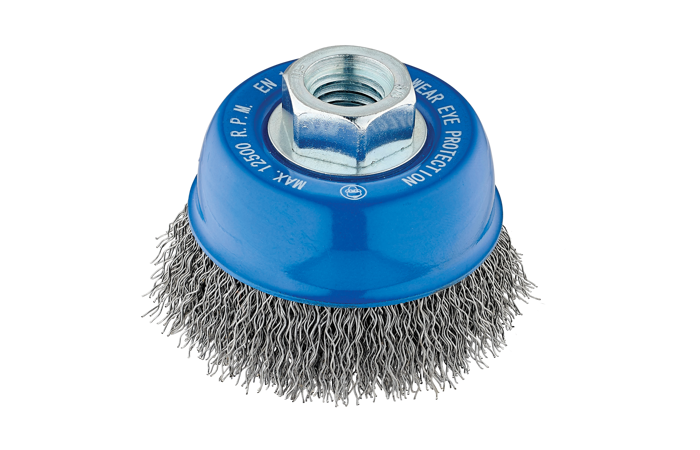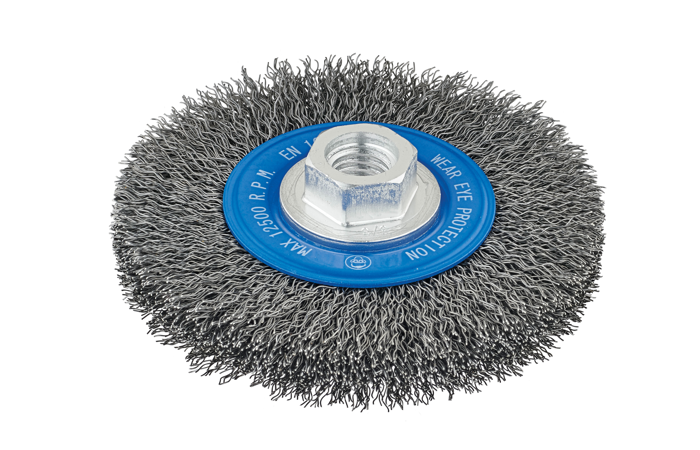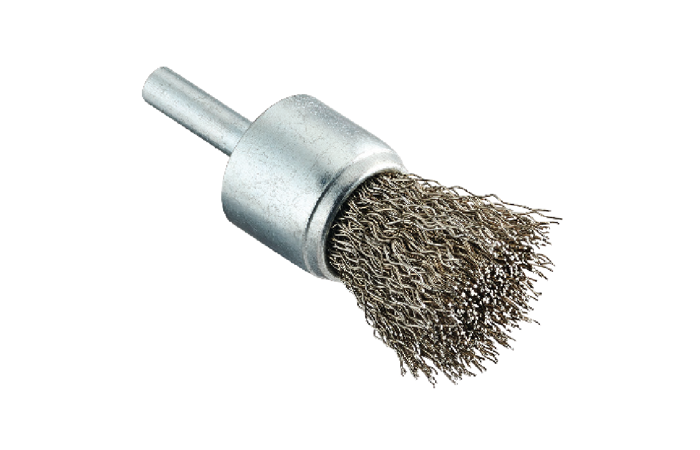Wire Brushes: Your Secret Weapon for Surface Prep and De-burring
Ever stare at a rusty metal surface or a freshly cut piece with sharp edges and thought, "How am I gonna clean this up?" That's where wire brushes come in. These unsung heroes of the tool world are about to become your new best friends. Let's dive into the world of wire brushes and see why they're essential for any serious DIYer or pro.
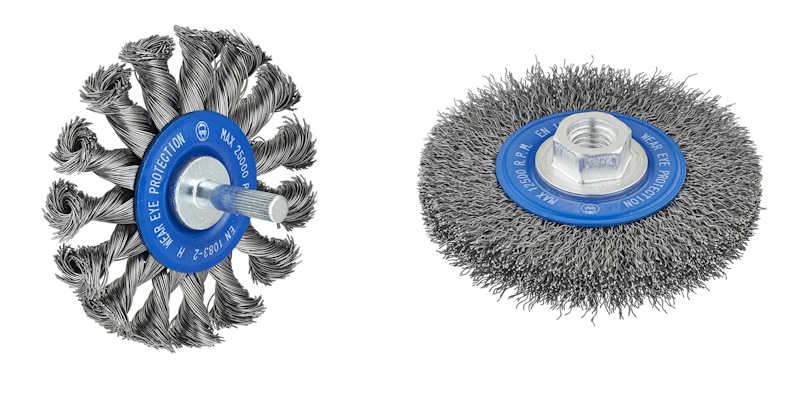
What Exactly Are Wire Brushes?
Wire brushes are tools with stiff wire bristles. They're designed to clean, strip, prep various surfaces, and remove burrs. Think of them as super-powered scrubbers with a talent for smoothing edges.
Why You Need Wire Brushes in Your Arsenal
- They make quick work of rust removal
- Perfect for stripping old paint
- Great for cleaning welds
- Ideal for prepping surfaces before painting or coating
- Excellent for de-burring applications
De-burring with Wire Brushes
De-burring is the process of removing sharp edges or small imperfections from machined or cut materials. Wire brushes excel at this task, especially on metal parts. They smooth out those annoying sharp bits left after cutting or drilling.
Types of Wire Brushes (Because One Size Doesn't Fit All)
Cup Brushes
Imagine a coffee cup made of wire bristles. These are perfect for larger flat surfaces and de-burring wide areas. Use them to strip paint off metal, clean up big rusty areas, or smooth out large cut edges.
Wheel Brushes
Picture a wheel, but instead of rubber, it's all wire bristles. These are great for getting into tight spots and de-burring complex shapes. I once used one to smooth out the edges of some freshly cut metal pipes - worked like a charm.
End Brushes
Think of a tiny wire brush that fits on the end of a power drill. These are your go-to for detailed work and precision de-burring. I use these all the time for cleaning small parts or smoothing out intricate cut patterns.
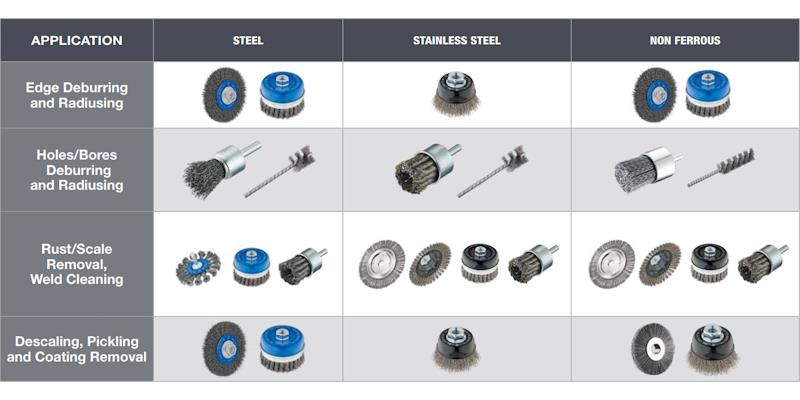
Choosing the Right Wire Brush (Don't Make This Rookie Mistake)
Material Matters
- Steel: Your all-purpose warrior
- Stainless Steel: When you need to avoid rust contamination
- Brass: For gentler cleaning and de-burring on softer metals
Wire Gauge
Thicker wires = More aggressive cleaning and de-burring
Thinner wires = Gentler touch, ideal for delicate de-burring tasks
How to Use Wire Brushes Like a Pro
- Always wear safety glasses (trust me on this one)
- Use gloves to protect your hands
- Let the brush do the work - don't push too hard
- Keep the speed moderate - faster isn't always better
- For de-burring, maintain a consistent angle for even results
Real Talk: Wire Brush Success Stories
I once helped a buddy in his machine shop. He was struggling with some freshly cut aluminum parts that had nasty burrs. We used a combination of wheel brushes and end brushes to smooth out those edges. The result? Parts that looked and felt professionally finished. The time saved? Incredible.
FAQs (Because I Know You're Wondering)
Q: Can wire brushes be used for de-burring plastic?
A: Yes, but use a softer bristle and be gentle to avoid damaging the material.
Q: How do I choose the right wire brush for de-burring?
A: Consider the material you're working with and the size of the burrs. Softer metals and smaller burrs need finer bristles.
Q: Can I use a wire brush on my 3D printed parts?
A: Absolutely! They're great for smoothing out layer lines, but use a gentle touch.
Wrapping It Up
Wire brushes are simple tools that pack a serious punch. They're versatile, tough, and can make your cleaning, prepping, and de-burring jobs a breeze. Whether you're tackling a small DIY project, a major restoration, or precision machining work, having a few different wire brushes in your toolkit is a smart move.
So go ahead, grab some wire brushes and start transforming those tough surfaces and rough edges. Your projects (and your satisfaction levels) will thank you.
Remember, when it comes to surface prep and de-burring, wire brushes are your secret weapon.
Explore Our Wire Brush Selection